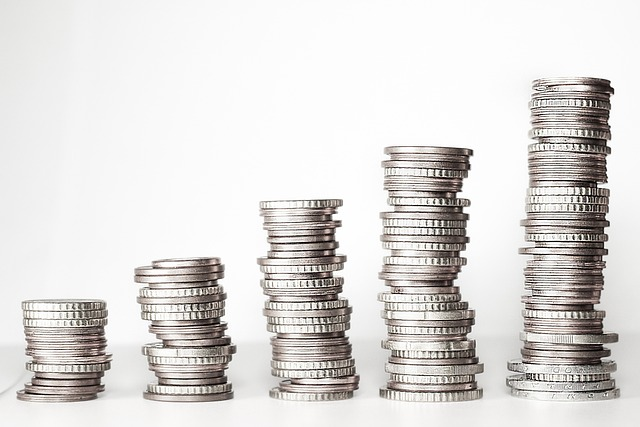Refund of Earnest Money
Introduction
In the competitive real estate market of Rhode Island, understanding the nuances of earnest money deposits is key for both buyers and sellers. This ‘good faith’ deposit, integral to securing a property deal, can often be a complex area, especially when it comes to refunds. “Smart Strategies for Ensuring a Successful Earnest Money Refund” aims to demystify this process, providing invaluable insights into how much earnest money to offer, the intricacies of purchase agreements, and the circumstances under which you can expect a refund or might lose your deposit. Whether you’re working with a real estate agent, dealing with an escrow company, or navigating a home sale independently, this guide is your essential resource for understanding earnest money in Rhode Island’s real estate market. A few good questions you might be asking yourself are earnest money refundable, what is a good faith deposit, home inspection contingency?

The Essentials of Earnest Money in Real Estate
Defining Earnest Money
Earnest money is a deposit made to demonstrate a buyer’s serious intent in purchasing a property. It’s a fundamental part of the real estate transaction, held in an escrow account as a sign of good faith.
Role of Earnest Money in Transactions
This deposit secures the property under a purchase agreement, acting as a safety net for the seller while the buyer secures financing or completes necessary inspections.
Determining the Right Amount of Earnest Money
Factors Influencing the Amount
Several factors, including the host real estate market conditions, the purchase price, and customary practices in Rhode Island, determine how much earnest money is appropriate.

Typical Earnest Money Amounts
While the amount varies, typically it ranges from 1% to 3% of the purchase price but can be higher in competitive markets or for cash for buyers.
The Process and Implications of Paying an Earnest Money Deposit
Making the Deposit
Paying earnest money involves a reputable third party, usually an escrow or title company, to hold the deposit until the purchase contract is fulfilled or the deal falls through.
Earnest Money and Purchase Contracts
The terms of the purchase contract dictate the conditions under which earnest money is held, modified, or refunded.
Refundability and Risks of Earnest Money

Conditions for a Refund
Earnest money is refundable under certain conditions outlined in the purchase agreement, such as an appraisal contingency or a failed home inspection.
Scenarios of Losing Earnest Money
There are instances, like failing to meet a financing contingency or backing out of a deal without a contractual reason, where a buyer might lose their earnest money.
Earnest Money in Specific Transactions
Cash for Houses and Earnest Money
Even in cash transactions, earnest money plays a role, assuring the seller that the buyer is committed.
Rhode Island’s Take on Earnest Money
Understanding Rhode Island’s specific regulations regarding earnest money, including any nonrefundable clauses, is crucial for anyone involved in real estate transactions in the Ocean State.
FAQs

Is earnest money always required in Rhode Island real estate transactions?
In most real estate transactions in Rhode Island, earnest money is a standard part of the process, whether it’s a traditional purchase or a cash-for-houses deal.
How much should I expect to pay as earnest money in Rhode Island?
Typically, earnest money is between 1% to 3% of the purchase price, but this can vary based on the property and market conditions.
What happens to the earnest money if the deal falls through?If the deal falls through due to contingencies in the contract, such as financing or inspection issues, the earnest money is usually refundable. However, if the buyer defaults without a contractual reason, the earnest money may be forfeited.
Can the earnest money be applied to closing costs or the down payment?
Yes, earnest money can often be applied towards closing costs or the down payment upon the successful completion of the transaction.
Are there any situations where earnest money is nonrefundable?
Yes, in some cases, particularly when specific contingencies are waived or if the buyer defaults on the agreement without a valid reason, earnest money can become nonrefundable.
How does the earnest money process differ for ‘cash for buyers’ transactions?
In ‘cash for buyers’ transactions, the earnest money process is typically faster as there’s no need to secure financing. However, the earnest deposit still serves as a sign of the buyer’s commitment and is subject to similar terms regarding refundability as in traditional transactions.
What role does a real estate agent play in the earnest money process?
A real estate agent guides how much earnest money to offer, helps draft the purchase agreement with appropriate contingencies, and facilitates communication between the buyer, seller, and escrow company to ensure the earnest money is handled properly.
What happens to earnest money if a property’s appraisal is lower than the purchase price?
In cases where a property’s appraisal comes in lower than the purchase price, the fate of the earnest money deposit largely depends on the appraisal contingency clause in the purchase agreement. If such a clause is included, buyers can either renegotiate the purchase price with the seller, opt to cover the difference themselves, or back out of the deal with their earnest money refunded. Without this contingency, buyers risk losing their earnest money if they choose not to proceed with the purchase, as they would be defaulting on the contract terms.
How does earnest money influence the negotiation process in a hot real estate market?
In a bustling real estate market, earnest money can be a significant factor in negotiations. A substantial earnest money deposit can make an offer more attractive to sellers, demonstrating serious intent and financial stability, especially in competitive bidding situations. However, buyers need to balance their enthusiasm with caution; offering too much earnest money can risk more capital if the deal doesn’t go through. Working with a knowledgeable real estate agent and understanding the market dynamics are crucial in determining an appropriate earnest money amount that safeguards the buyer’s interests while making a compelling offer.
Who owns the money in an escrow account?
In an escrow account, the funds are held by a neutral third party, the escrow agent, and are not owned by the agent. The money is jointly owned by the transaction’s parties (such as the buyer and seller in a real estate deal) until the conditions of the agreement are met. Once these conditions are fulfilled, the escrow agent disburses the funds as outlined in the escrow agreement, ensuring that the transaction proceeds fairly and according to the agreed terms.
Conclusion:
Understanding the dynamics of earnest money in real estate transactions, especially in Rhode Island, is crucial for both buyers and sellers. From determining the right amount to navigating the refund process, it’s a critical component that safeguards the interests of both parties. Remember, the key is clear communication and understanding of the terms of the purchase contract. Whether you’re dealing with a down payment, closing costs, or securing financing, earnest money plays a pivotal role in your real estate journey. Armed with these insights and strategies, you’re now better equipped to navigate this vital aspect of your real estate transactions with confidence and success.

